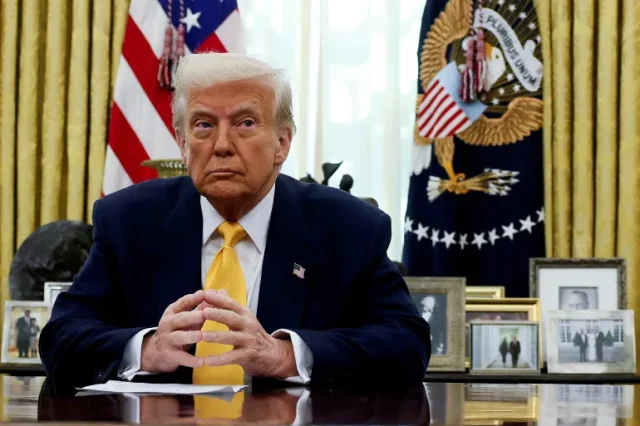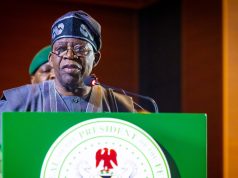U.S. President Donald Trump is set to introduce a sweeping change to the H-1B visa program by imposing a $100,000 application fee for foreign skilled workers.
This was confirmed by the White House on Friday as part of the administration’s broader immigration crackdown, which could reshape the dynamics of the U.S. labor market and deal a significant blow to the global technology industry, which relies heavily on imported talent, Reuters first reported.
The H-1B program grants work authorization to highly skilled foreign nationals in areas such as technology, engineering, education, and healthcare. India and China have historically dominated the program, with India accounting for 71% of approved beneficiaries in 2024, according to government data.
Trump’s planned executive proclamation would require companies to pay the $100,000 fee before H-1B visa holders are allowed entry into the U.S. This is a sharp escalation from the current system, where applicants pay $215 to enter the annual lottery and face additional costs running into thousands of dollars depending on their cases.
While the administration argues the move is aimed at protecting American workers, varying opinions say it risks undercutting the competitiveness of U.S. firms. Roughly two-thirds of all H-1B positions are computer-related, and firms like Amazon, Microsoft, Meta, and Cognizant have come to depend on the program to address critical talent gaps.
More insights
In the first half of 2025 alone, Amazon secured more than 10,000 H-1B approvals, while Microsoft and Meta each received over 5,000, data from U.S. Citizenship and Immigration Services shows.
Analysts warn that the proposed fee could push companies to move more jobs offshore or accelerate investments in other global hubs with friendlier visa policies.
The stock market reaction was swift: shares of Cognizant Technology Solutions, which relies heavily on H-1B workers, dropped more than 2%. U.S.-listed shares of Indian IT giants Infosys and Wipro also slid by a similar margin following the news.
Supporters of the H-1B program, including Tesla CEO Elon Musk, have previously argued that restricting access would harm innovation. “Limiting skilled immigration is not the way to make America stronger,” Musk said earlier this year. However, many U.S. tech workers and unions contend that the program has been misused to suppress wages and displace domestic workers.
What you should know
Beyond corporate America, the policy holds major implications for India’s $250 billion IT services industry, which sends tens of thousands of skilled workers to the U.S. each year. For Nigerian professionals eyeing opportunities in the U.S. tech ecosystem, higher entry costs may reduce mobility and access, potentially redirecting talent flows to Europe, Canada, or Asia.
If signed, the measure would mark one of the most aggressive overhauls of the H-1B system in decades, intensifying the ongoing clash between Washington’s protectionist agenda and the global tech sector’s demand for open access to skilled labor.
In January 2025, DHS updated rules to tighten definitions of specialty occupations and improve verification of job roles. By February, Nigerians and other foreign professionals were exploring alternative routes such as L‑1, O, and P visas due to rising H‑1B rejection rates. In August, the Nigerian Immigration Service reminded citizens to comply strictly with U.S. visa regulations.
A significant development in 2025 also allows foreign startup founders and business owners to self-sponsor their H‑1B visas, a shift expected to reshape global entrepreneurship. Previously, applicants had to secure a U.S.-based employer to petition for the visa, often relying on third-party arrangements. The H‑1B visa is initially valid for three years and can be extended to six years.
The United States Mission in Nigeria addressed concerns about high U.S. visa fees, noting that charges remain non-refundable and non-transferable, but every application is thoroughly and fairly reviewed. They urged Nigerians to prepare applications carefully and rely on official resources to avoid costly mistakes.











